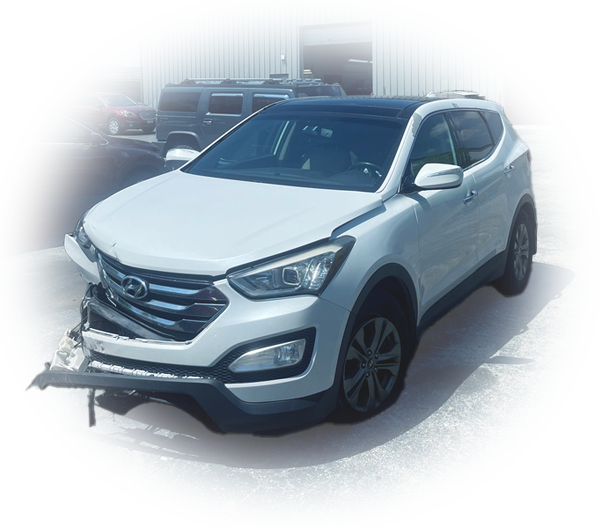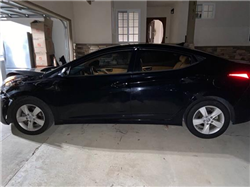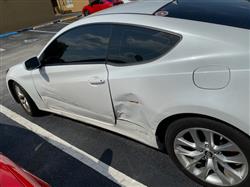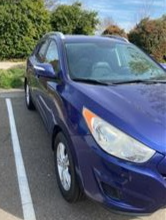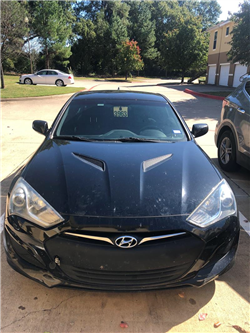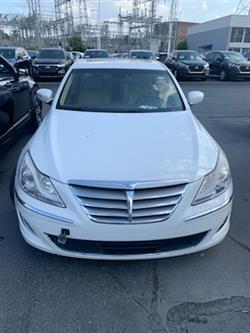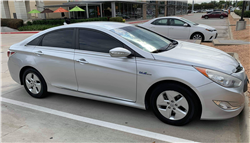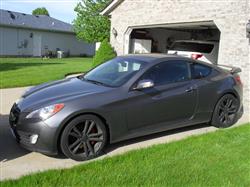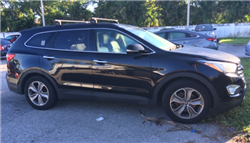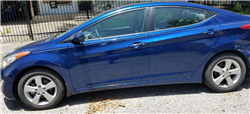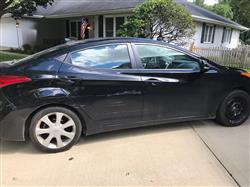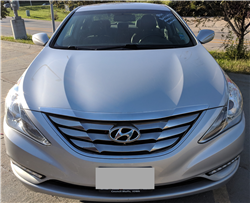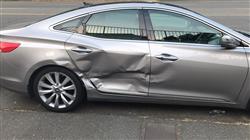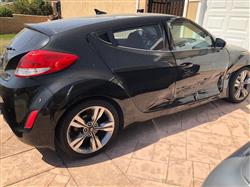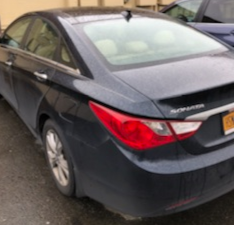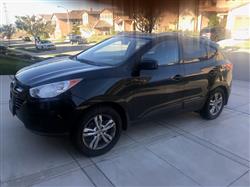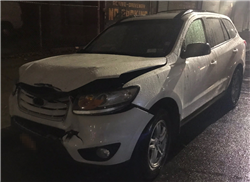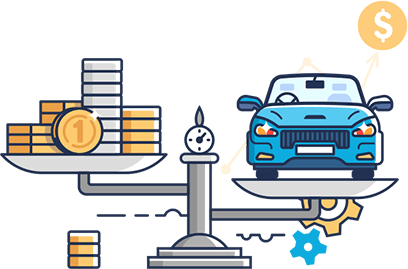Should I Fix Or Sell My Hyundai
Whether you're facing costly repairs or simply looking to upgrade to a new vehicle, selling your Hyundai for cash can be a smart decision. In this guide, we'll explore everything you need to know about selling your Hyundai, from common issues to the best ways to sell it hassle-free.
You may be tempted to try to fix up a car with problems rather than selling it. But there comes a point that repairing your car simply does not make financial sense. Before you shell out any money for a trip to the mechanic's, you should consider what you're spending money on.
A good rule of thumb is to calculate the current market value of your vehicle. If the cost of fixing your vehicle equals 50 percent or more of its current value, it's time to start getting offers instead.
How Much Cash Can I Get for a Junk or Damaged Hyundai?
Wondering how much cash you can get for your junk or damaged Hyundai? The value depends on various factors such as the year, model, condition, and location of your car. At CarBrain, we specialize in buying all types of Hyundais, offering fair and competitive prices for junk, damaged, or non-running vehicles.
Factors Influencing Your Hyundai's Value.
- Year: Newer models generally fetch higher prices.
- Model: Different models have varying demand and parts value.
- Condition: Vehicles with significant damage or mechanical issues may still have valuable parts.
- Location: Local demand and towing costs can affect the offer.
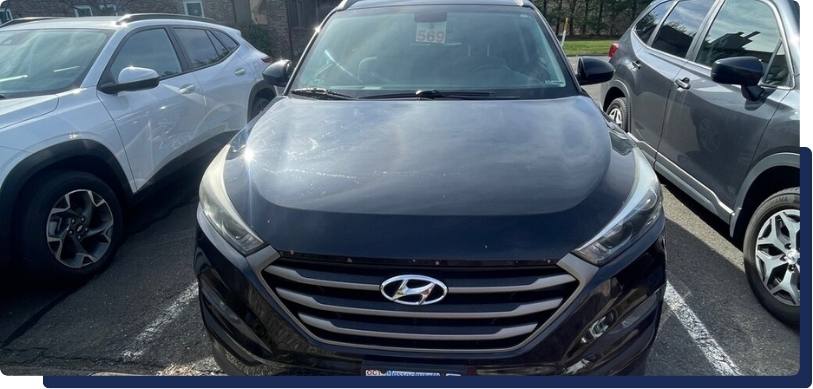
Is Repairing My Damaged Hyundai Worth it?
If your Hyundai has been damaged in an accident or has significant mechanical issues, you may be wondering if it's worth repairing. Here is a list of the most popular Hyundai models and their average repair cost to consider:
|
Model |
Annual Repair Cost |
|
$450-$500 |
|
|
$430-$480 |
|
|
$460-$510 |
|
|
$520-$550 |
If the cost of repairs, such as a Hyundai engine repair cost, outweighs the car's value or you're ready to move on to a new vehicle, selling your Hyundai for cash may be the best option.
The Most Common Issues With Hyundais
While Hyundai vehicles are known for their reliability, they're not immune to common issues that can arise over time. Some of the most common problems reported by Hyundai owners include:
- Transmission: Some models, especially those with automatic transmissions, may experience slipping or shifting problems.
- Electrical: Malfunctions in power windows, door locks, or dashboard lights can occur due to faulty wiring.
- Suspension/Steering: Owners have reported noise, vibration, or difficulty steering in Hyundai vehicles.
- Engine: Problems like rough idling or reduced power can arise due to fuel system issues or faulty sensors.
- Brakes/ABS: Squeaking brakes or ABS warning lights may indicate brake system problems.
While these issues are relatively common among Hyundai vehicles, proper maintenance and timely repairs can help mitigate potential problems and keep your Hyundai running smoothly for years to come.
Hyundai Engine Recall
Working closely with the National Highway Traffic Safety Administration (NHTSA), Hyundai has initiated numerous recalls aimed at rectifying manufacturing defects that could result in engine failure and, in some cases, even trigger engine fires. While most incidents concerning the affected vehicles typically manifest as engine knocking, there have been reported cases of stalling, wherein the engine ceases operation while the vehicle is in motion. Crucially, drivers encountering this scenario can still retain control of the vehicle, as essential safety features like brakes, steering, and airbags remain fully functional.
The engine, serving as the core of any vehicle, holds significant importance in determining its overall performance. Yet, Hyundai automobiles, specifically the 2011 and 2012 Hyundai Sonata models, have garnered attention for encountering a spectrum of engine-related issues. These span from anomalous sounds and intermittent stalling to the severe consequence of engine seizure.
Hyundai and its sibling brand, Kia, have encountered substantial hurdles with their 2.0-L and 2.4-L four-cylinder engines. These engines have gained notoriety for experiencing spontaneous seizures, posing a risk of engine failure.
The root of the problem stems from metallic debris inadvertently left during the manufacturing process. These particles impede the flow of oil to connecting rod bearings, causing premature wear and eventual failure. Consequently, this issue prompted a recall of 1.4 million cars and SUVs, impacting various models such as the Hyundai Santa Fe Sport, Sonata, and the Kia Optima and Sportage.
Hyundai Engine Replacement Settlement
Hyundai engine issues have been in the spotlight, leading to a settlement for certain models. While Hyundai provides engine replacement warranties for eligible vehicles, whether Hyundai will replace your engine for free depends on various factors and eligibility criteria outlined in the settlement.
Customers have shared mixed reviews about Hyundai's engine replacement process, with some praising the coverage and service quality, while others expressing dissatisfaction with delays or additional costs.
If you're experiencing engine problems with your Hyundai, it's essential to check if your vehicle qualifies for the settlement. We recommend you inquire about Hyundai engine replacement warranty coverage and potential costs associated with engine replacement.
Our expert evaluators can help you get an accurate estimate for your cars value, FAST!

How Much Does a Hyundai Engine Cost?
The Hyundai engine replacement process can vary depending on several factors, including the model year, engine type, and labor costs. On average, you can expect to pay anywhere from $2,000 to $5,000 for a new or rebuilt Hyundai engine, including parts and labor.
Keep in mind that the cost to replace a Hyundai engine may exceed the current value of your Hyundai, especially if it's an older vehicle with high mileage. In such cases, selling your Hyundai for cash may be a more cost-effective solution than investing in expensive engine repairs.
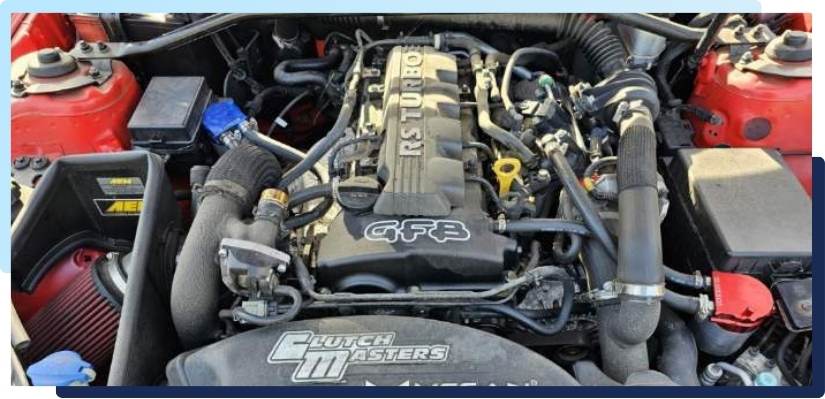
Engine Replacement Cost Varies by Car Generation
The cost of engine replacement for Hyundai models depends significantly on the generation of the vehicle. Here are some reasons:
- Technological Improvements: Newer generations of Hyundai models incorporate advanced technologies and modern engine designs, leading to increased complexity and higher replacement costs.
- Parts Availability: Parts for older generations may become scarce over time, driving up the cost due to limited availability or the need for custom parts manufacturing.
- Labor Requirements: The complexity of newer engines often requires specialized skills and tools, increasing labor costs for replacement. Older engines, being simpler, may not have the same labor cost implications.
- Regulatory Compliance: Changes in environmental and safety regulations influence engine design and manufacturing, often making newer engines more expensive to replace.
- Enhanced Features: As Hyundai models evolve, they may include more high-performance and luxury features, which can lead to more sophisticated and costly engines.
Hyundai Engine Replacement Costs by Generation
|
Rank |
Model |
# Of Generations |
Years Range |
Engine Replacement Cost Range |
|
1 |
7 |
1990 - present |
$3,000 - $6,500 |
|
|
2 |
8 |
1985 - present |
$3,500 - $7,500 |
|
|
3 |
4 |
2000 - present |
$3,500 - $7,500 |
|
|
4 |
4 |
2004 - present |
$3,500 - $7,000 |
|
|
5 |
5 |
1994 - present |
$2,500 - $6,000 |
|
|
6 |
1 |
2017 - present |
$3,000 - $6,500 |
|
|
7 |
1 |
2020 - present |
$4,000 - $8,000 |
|
|
8 |
3 |
2011 - present |
$3,000 - $6,500 |
|
|
9 |
2 |
2016 - present |
$3,500 - $7,000 |
|
|
10 |
1 |
2008 - 2016 |
$4,000 - $8,500 |
Where Can I Sell My Hyundai Car?
When it comes to selling your Hyundai car, you have several options to consider:
- Private Sale: List it online or in classified ads to negotiate directly with buyers.
- Trade-In: Consider trading it in at a dealership when buying a new car.
- Car Buying Service: Sell it to a reputable service like CarBrain, which buys cars in any condition for a fair cash offer.
- Online Car Buyers: Explore platforms offering quick and easy quotes for your used car.
Consider your priorities, such as convenience, speed, and maximizing your car's value, when choosing the best option to sell your Hyundai car.
Is Selling a Hyundai for Parts a Good Idea?
If you want to get more than Hyundai scrap value for your damaged car, you can sell it for parts or part it out. This is a limited market and can be time-consuming.
If you know where to sell Hyundai parts, this can be helpful as well. Cars that are sold for parts may involve a Hyundai salvage yard and will get little more than scrap value.
CarBrain Has Purchased Hyundais Like These In 2024
Sell My Hyundai In Any Condition With No Hassle
Selling your Hyundai with no hassle is easier than you might think, especially with CarBrain. We buy:
- Collision Wrecks
- Broken-down
- Mechanical Damage
- Body Damage
- Seized Engine
- Salvage/Rebuilt
- Bad Transmission
- Cars for Parts
- Falling Objects
- Non-Running
- Junk Cars
- Hail Damage
- Rollover Damage
Selling your Hyundai for cash doesn't have to be a daunting task. By following the steps outlined in this guide and exploring your selling options, you can sell your Hyundai quickly and hassle-free. Whether you choose to sell privately, trade in at a dealership, or sell to a car buying service like CarBrain, you can get cash for your Hyundai and move on to your next adventure with ease. Contact us today if you have any questions or concerns. Fill out a free, no-obligation quote for your Hyundai today!
We Buy Hyundai Cars of all Models
We buy any model, from the Hyundai Sonata to the Hyundai Elantra. We buy running and non-running Hyundais. We'll buy your Hyundai if it has been in an accident or has a blown engine.
Is it too expensive to repair? We've got you covered.
Fill out our form and tell us about your car. Review your quote, and when you accept it, we will make arrangements to pay for it and pick it up within just two business days. Put that troublesome car in the rearview mirror with a visit to CarBrain.com.

